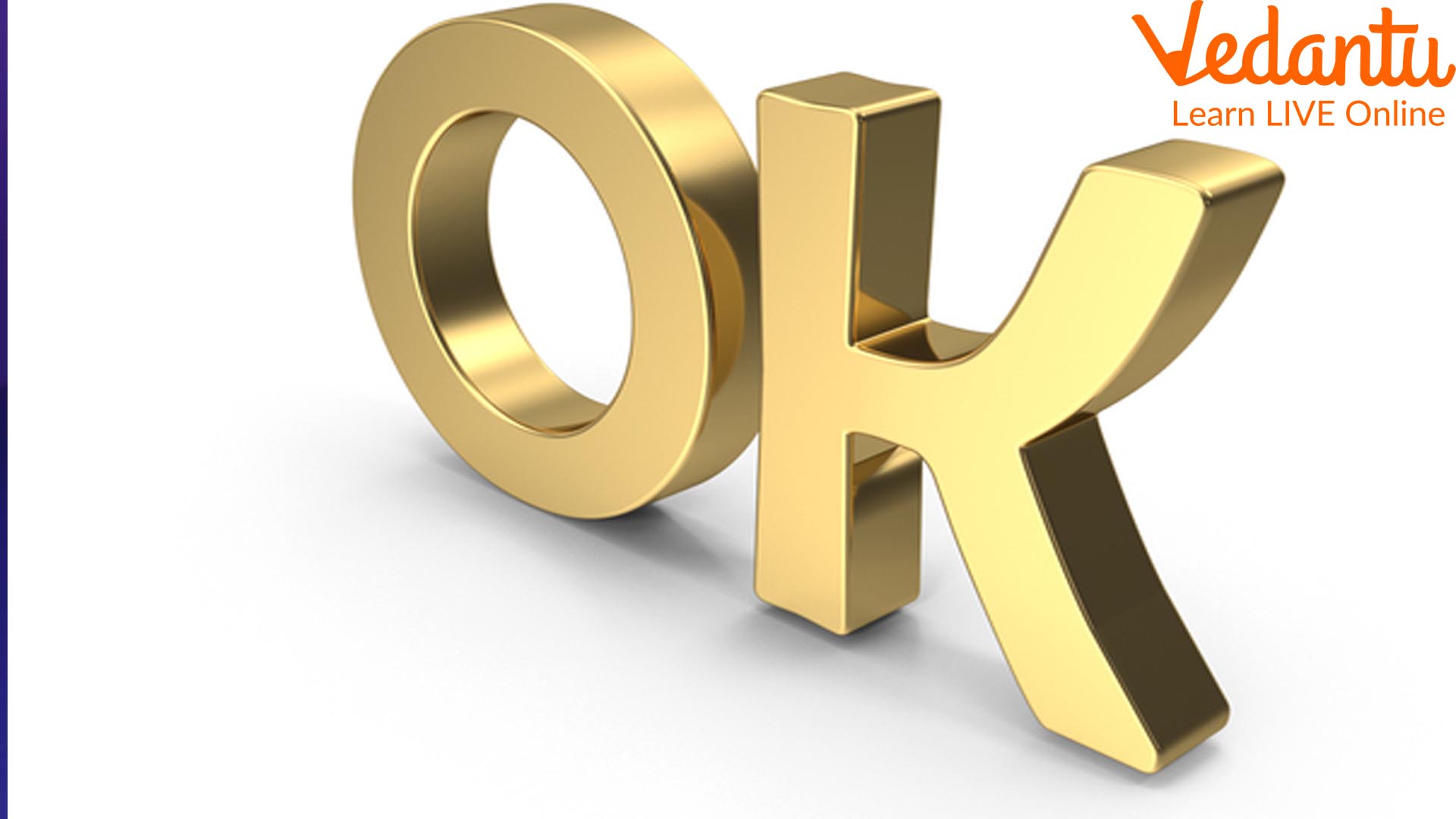What Do You Mean by OK? Its Story and Full form
What is that word that is easily recognised by anyone irrespective of their origins and local languages? Which is the most common word used in the modern world these days? You will be surprised to know that this word is not even a word. Funny isn’t it? Well, no more holding the horses. The word is Ok.
Ok is a word that did not originate from the way all our English words have originated. In fact, it is not as old as the English language either. How did it become so successful? Let us discuss the ok story here and find out how it became so popular in this era.
Theories Related to the Origin of OK
There are so many theories about the origin of this word. We have been using it for decades but did not even think of checking its origin. In fact, we did not even know the actual full form of this word. We probably have been thinking that the word originated simply colloquially and has caught the attention of all. It has spread through word of mouth and became a cool trend to use in front of all.
Well! This is not the case. A theory suggested that OK can be the abbreviation of the Greek words Ola Kala. It means everything is fine. There is another theory that suggests that Choctaw, a Native American tribe, originally from the contemporary Southeast United States, has a word called ‘Okeh’. It means that ‘so it is’.
The meaning is also very close to the way we use ok these days. In another speculative story, Woodrow Wilson, the American President wanted to use the Native American term as the abbreviation of the meaning. He reportedly thought the spelling of Okeh is Ok. He started using it. To our surprise, research suggested that the ok story does not begin or originate here.
There is another theory that suggests Martin Van Buren, 8th President of the USA. His hometown was Old Kinderhook and he nicknamed it OK. When he wanted the support of the people in 1837, he framed the slogan ‘Vote for OK’.

The Origin of Ok
Ok: The Origin of the Most Common Word
The origin of this work has a long history, as it seems. This was an abbreviation indeed but was a mistake as it sounds. Nowadays, we use popular abbreviations such as LOL and BRB. LOL means laughing out loud and BRB means being right back. We know the abbreviations now because we are the generation that has seen the origins of these words and are using them. However, decades later, the users might forget them.
The same thing happened to Ok. It dates back to the 1820s when people deliberately used misspellings to look cool. It became a linguistic fad to write down words with distorted spellings to make them sound familiar and stylish. This was the origin of a joke that tells us about the ok abbreviation.
On 23rd March 1839, an American newspaper named the Boston Morning Post followed the same fad to make it look like a joke. A satirical grammar word was introduced as a pun on that day by Charles Gordon Greene, the editor of this newspaper. He came up with an abbreviation of O.K. and thought it to be very funny. Imagine that being funny in the 1830s. Well, yes it was!
He was the one to frame the famous ok meaning ‘all correct’. He actually followed the fad of using linguistic words and misspelling them intentionally as a joke or to look cool following a trend. He transformed the spelling from ‘all correct’ to ‘oll korrect’. This was humorous two centuries ago! We now know the pun-intended ok full form and its abbreviation.
In fact, it was so humorous that it caught up with the current population and spread like wildfire. People started using it as a cool statement and had fun with it. Imagine how fast and far it has gone in today’s world in just two centuries that all major language users understand it correctly. Hence, it was the editor of the okay magazine that made it popular.
Momentum in Ok’s Popularity
Now that we know the origin and story behind the word Ok, let us find out how it got so much popular. Back then, the fastest way of communicating with people was the telegraph. It was invented by Samuel F. B. Morse, the father of the Morse code. It was publicised and used for transferring messages to common people later.
Back then, every word cost a lot for common people to send a message. This is why abbreviations became the only way to save money. You can clearly imagine the most common message sent across the world using the telegraph. People started sending messages using what ok means to save on telegraph letters and got it more popular.
Another good reason behind the popularity of this word is its convenience to use. When a person asks a question related to health or current situations, one has to say ‘I am doing well’ or ‘It’s all fine’. The best way to answer is using the word OK. You can also use this word to agree with someone too. In fact, it is the most convenient way of agreeing after nodding your head to show your agreement.
OK Was a Funny Mistake
In a nutshell, the word OK was a funny mistake done intentionally to make people laugh. This 1839 word is so popular that it has originated in ok film these days. This fun-filled linguistic trend was not a mistake then! People love to use this word to communicate with someone with a language barrier. The agreeability of anything can be determined within a fraction of seconds using this word.







